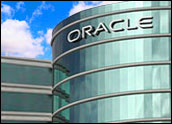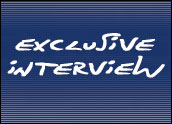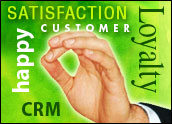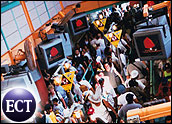
On Monday, Oracle announced its US$5.85 billion acquisition of Siebel Systems, its largest competitor and tag-team vendor to many of its customers.
The acquisition came as no surprise to industry experts, although the timing of it preceded some experts’ expectations. “We were actually a bit surprised Oracle did this deal as soon as it did,” says AMR Research CRM analyst Rob Bois. Oracle is still struggling to make PeopleSoft and its J.D. Edwards unit a good fit, nine months after that long-plotted and consternation-filled takeover. It also has purchased retail software companies ProfitLogic and Retek and banking software company i-flex.
Moving Up the Ladder
“Oracle really has a lot on its plate to work through,” says Paul Hamerman, vice president with Cambridge, Mass.-based Forrester Research. However, the purchase of Siebel sets Oracle up as better competition to SAP in the CRM space. “Oracle gains a best-in-class capability that puts it in a much better position to compete with SAP and Salesforce.com,” Hamerman says. “This moves Oracle up.”
Additionally, Siebel will be an easier acquisition to swallow, Bois says. Siebel already has packaged integration into Oracle ERP. Given that, there is considerable overlap between Oracle’s and Siebel’s customer bases (although in the acquisition announcement, Oracle said it will add 3.4 million new CRM users and 4,000 applications customers with the purchase). And unlike the PeopleSoft acquisition, this one is friendly, minimizing any cultural strain of synthesis.
“Siebel is a much larger footprint of a company that’s recognized as a leader in CRM,” adds Bob Blumstein, research director of CRM analysis and market applications at IDC, Framingham, Mass. Oracle alone has software that answers CRM needs, he says, but “Siebel is a company dedicated to CRM. It has a sales force fully dedicated to CRM. That makes a difference.”
Impending Layoffs
Oracle has said that it will keep Siebel’s dedicated sales force on the case of CRM, so sales force alignment will not be too much of a challenge — Oracle will keep the experts in place. But employee redundancy cannot be overlooked, and analysts have predicted that many of Siebel’s 5,000 employees worldwide will lose their jobs once the deal closes next year.
Siebel’s CRM solution will take prominence over Oracle and PeopleSoft CRM products. Oracle’s Project Fusion, which aims to combine best-of-breed functionality from its enterprise applications into a single product, benefits from Siebel’s strong CRM application. “Overall, I think this is positive for Oracle,” Hamerman says. “It addresses a weakness in its overall product application suite.”
The acquisition also settles the weakness Siebel had been feeling for some time, as its revenue dropped to $1.3 billion in 2004 from $2.1 billion in 2001 and executives rotated through the top office, each disappointing the board and shareholders with weak financial returns.
“Siebel, a year from now, would have been much cheaper, so something was driving Oracle to do this deal sooner than later,” Bois says. “Siebel customers certainly would be happy about this transaction since it gives them a much better comfort level about the future of their CRM vendor.
Customer Commitment
“Siebel had failed to grow for several quarters now, and although they had over $2 billion in cash, [they] still had viability concerns within their customer base,” he continues. “We did speak with several Siebel customers who had stated they were not going to invest further in Siebel largely because of its uncertain future. That position may change once the acquisition goes through.”
“Siebel customers had been worried about the company’s viability, and now they have a different set of issues to worry about,” Hamerman says, specifically the migration of Siebel’s CRM solution to Project Fusion, the timeliness of Siebel product upgrades and Oracle’s attention to serving Siebel customers. “It’s going to be hard for Oracle to support both enhancements and services on all of its product lines. They’re going to have to make some big decisions, or they’ll spread themselves very thin.”
With the Siebel purchase, Oracle also plunges deeper into verticals such as financial services, health care and the public sector.
Hamerman predicts Oracle will make more acquisitions, beefing up on vertical-specific software vendors, furthering the trend it started with the Retek, i-flex and ProfitLogic purchases. However, there’s also the possibility that Oracle will acquire CRM companies that have made inroads with small and mid-sized enterprises. Penetration of this market is not an Oracle strength currently.





















































